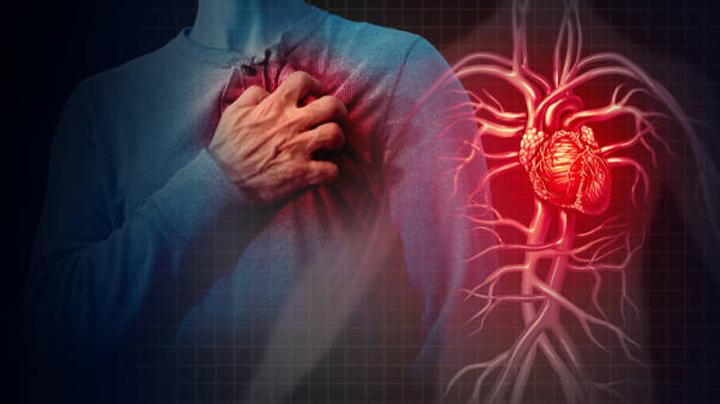Chest discomfort, a ubiquitous complaint in emergency rooms globally, is frequently misinterpreted as a benign symptom of modern life. Often attributed to indigestion, gas, stress, or fatigue, it can mask a far more serious condition: a heart attack, medically known as a myocardial infarction. This occurs when a blood clot obstructs a coronary artery, cutting off the oxygen supply to a portion of the heart muscle. Swift medical intervention is critical, as the lack of oxygen can lead to irreversible damage or death. The challenge lies in the often-subtle and varied presentation of heart attack symptoms, particularly among younger individuals and women, leading to delays in seeking appropriate medical care.
The classic image of a heart attack involves crushing chest pain, but reality is often less dramatic. Many individuals experience milder symptoms, such as a general feeling of discomfort or tightness in the chest, pain radiating to the arm, neck, jaw, or back, shortness of breath, unexplained fatigue, cold sweats, or lightheadedness. This seemingly innocuous nature of the symptoms contributes to the tendency to dismiss them as minor ailments, further delaying necessary medical intervention. This is particularly concerning in India, where the incidence of cardiovascular disease is rising alarmingly among younger adults, driven by lifestyle factors like unhealthy diets, sedentary habits, chronic stress, insufficient sleep, and tobacco use. Urban areas see a surge in premature coronary artery disease diagnoses in individuals in their 30s and 40s, many of whom are unaware of underlying risk factors such as hypertension, diabetes, or high cholesterol.
The problem is further exacerbated by the tendency to delay seeking medical help. Individuals experiencing these symptoms often wait, hoping they will subside, or self-medicate with antacids or pain relievers, mistaking cardiac distress for indigestion or muscle strain. This delay can be fatal. The first few hours following the onset of a heart attack, often referred to as the “golden hours,” are crucial. Rapid reopening of the blocked artery significantly improves the chances of preserving heart muscle function and averting complications like heart failure or arrhythmias.
While chest discomfort can arise from various non-cardiac sources, such as gastrointestinal, muscular, or respiratory issues, the potential consequences of a misdiagnosis are too severe to ignore. Simple diagnostic tests, including electrocardiograms (ECGs), cardiac enzyme blood tests, and non-invasive imaging, can quickly determine the cause of chest discomfort. The cost of ignoring potential heart-related symptoms far outweighs the time and resources required for a proper medical evaluation.
Preventing heart disease requires a multifaceted approach. While factors like genetics and age are immutable, many lifestyle choices can significantly mitigate risk. Regular health check-ups are essential for early detection and management of conditions like hypertension, diabetes, and high cholesterol. Maintaining optimal blood pressure and blood sugar levels, controlling cholesterol through diet and medication, adopting a balanced nutritional plan, ceasing tobacco use, engaging in regular physical activity, and implementing effective stress management techniques are crucial for minimizing risk. Even small, consistent lifestyle changes can contribute significantly to long-term heart health.
Raising public awareness about the diverse manifestations of heart disease is paramount. Recognizing that symptoms can vary significantly among individuals is key to early detection and intervention. Educating family members, caregivers, and the wider community about these varied symptoms can facilitate prompt action when necessary. Subtle signs like unusual fatigue, vague pressure in the chest, or a general feeling of unease should not be ignored, especially in individuals with existing risk factors. It’s crucial to understand that early symptoms of a heart attack may not be overtly dramatic.
Chest discomfort, while not always indicative of a heart attack, should never be dismissed casually. The consequences of inaction can be irreversible. In a situation where time is of the essence, immediate medical attention is crucial for survival and recovery. The slightest suspicion of cardiac-related symptoms warrants immediate medical evaluation. In cardiac emergencies, time is not just valuable; it is life-saving. Heeding the body’s warning signs is paramount for preserving health and well-being. Dr. Dinesh Raj, a senior consultant cardiologist, emphasizes the importance of acting decisively when experiencing chest discomfort. His expertise underscores the gravity of potential consequences and the need for prompt medical attention to ensure the best possible outcome in cardiac emergencies. The overarching message is clear: when it comes to heart health, taking swift action can be the difference between life and death.














